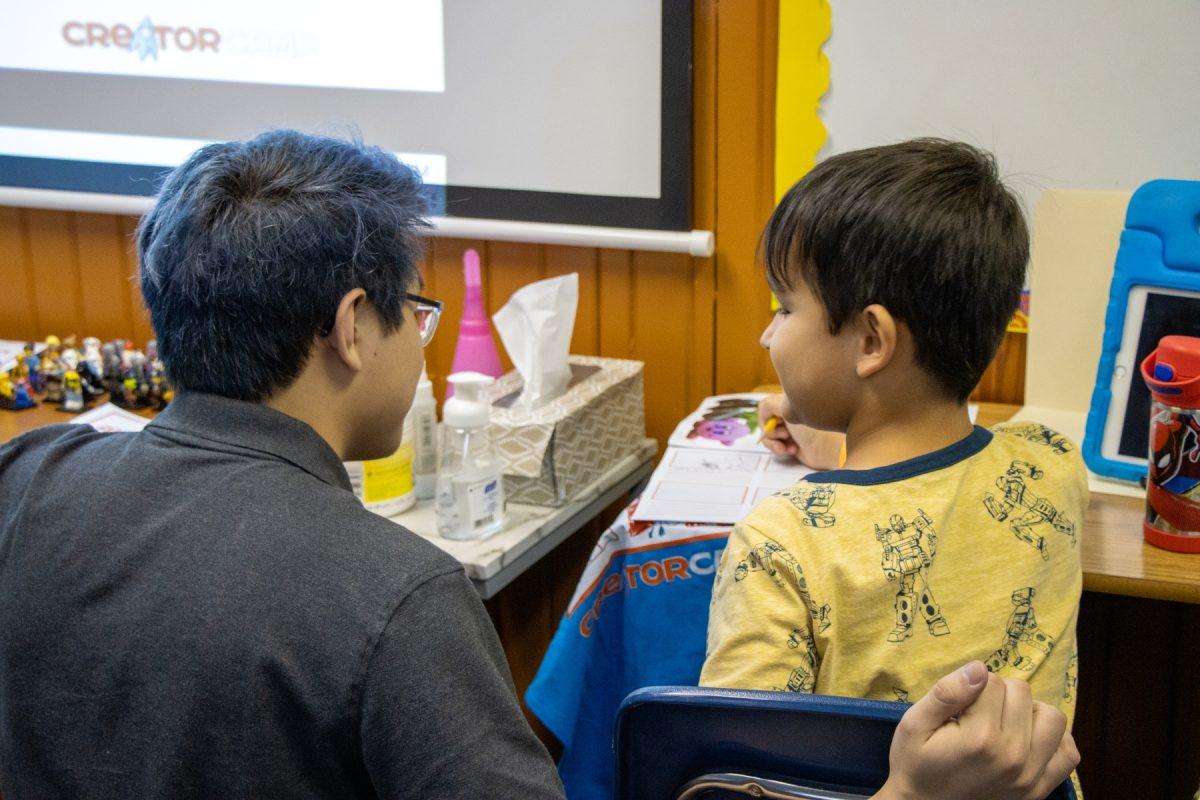UTD alumnus Jacky Chao has turned his tech dream into a reality. From filming short movie clips inside the gym to getting featured on The Washington Post for their content creation camp, Chao and four high school friends are using their love for all things tech to inspire a new generation of creators.
Chao, who majored in ATEC, is making waves in the tech industry with Creator Camp, started in summer 2021 with co-founders Kai Forman, Cazden Morrison, Winston Cadenas and Robbie Davidson. Creator Camp got its start by winning $25,000 at UTD’s Big Ideas Competition, where students from all education levels pitch their start-up ideas; this seed money has fueled financial aid and the camp’s expansion into Dallas. Kids ages 6-13 learn skills like filmmaking, studio animation and creative AI in two or three-day camps priced at $150 and $230 respectively. At the camp, students make use of creative mediums like green screens and Minecraft coding modules. The idea of Creator Camp came to the co-founders when they noticed a lack of expressive technology-related activities in high school.
“There wasn’t really a lot of creative or technology-focused classes,” Chao said. “Everything was very academic. It’s either academic or very sports … we felt like outcasts.”
Even with no formal business training, the co-founders were able to build a company from the ground up. The team drew early inspiration from their high school teacher, Mr. Kolkman, who stayed after hours to support their projects and offered to chaperone when they filmed short films.
The five founders have integrated experience from each of their educations into the knowledge they impart on campers. Morrison’s degree in film from UT Austin gave him an experimental outlook while designing the filmmaking curriculum for Creator Camp, urging campers to explore new ways to tell stories visually. Forman’s degree in game programming proved useful in making course curriculum for gaming.
“The industry is always changing. We want the instructors to be up to date with the industry trends and what is more important, software or passion,” Chao said.
Though the students at Creator Camp have creative moments, Chao said teamwork proves to be an issue at times. When successful, collaboration works wonders for the students’ creativity and capacity to execute their ideas. Even though working in teams can sometimes be difficult for the children, once they hit a sweet spot, the project comes together.
“Some of the young kids get distracted while the older ones want to continue on. But for the most part, they all make awesome stuff,” Davidson said.
During his time at UTD, Chao took guidance from David Marks, a professor of sound production, and Eric Farrar, his capstone professor. He was influenced by both advice on practical aspects of sound design as well as the professors’ philosophies on work and art.
“Farrar taught me to be kind to myself and my ideas during production, to remember that the process should always be enjoyable,” Chao said. “Marks … challenged me to focus more on details, think about the qualities and characteristics of each instrument and how that affects the overall piece.”
Creator Camp currently has locations in Houston, Dallas, Austin and San Antonio, with plans to expand to Salt Lake City and Denver as well as international locations like Australia. Additionally, Creator Camp hopes to implement guidance counseling programs for high school students who want to get into art colleges by helping them create their art portfolios.
“What I want to impart to the kids is not just how do you do a stop motion animation, but it’s more inspiring for them to use these tools to tell big ideas,” Chao said.
While they weren’t given many opportunities to grow creatively in their youth, these five friends hope to inspire others who wish to start their own business and pursue their own passions. For Morrison, it’s important to keep a hold of possibility and venture toward it.
“For us, at least, whenever we started the camp, we could have asked a million questions and did not have the answers and then decided not to start the camp,” Morrison said. “Once we got going, it was easy to figure those things out and just took us committing and then doing it.”





